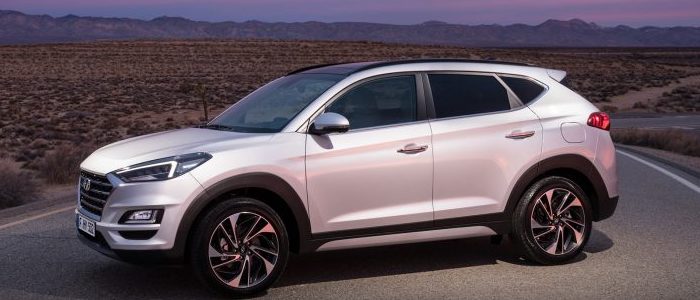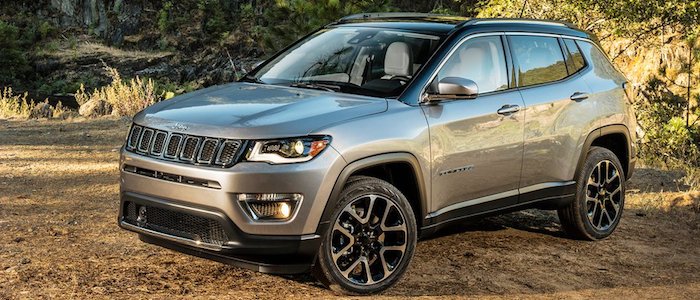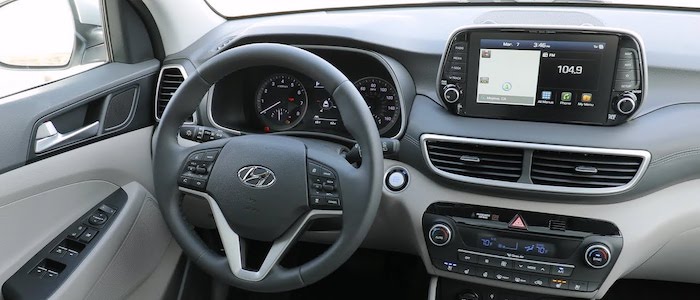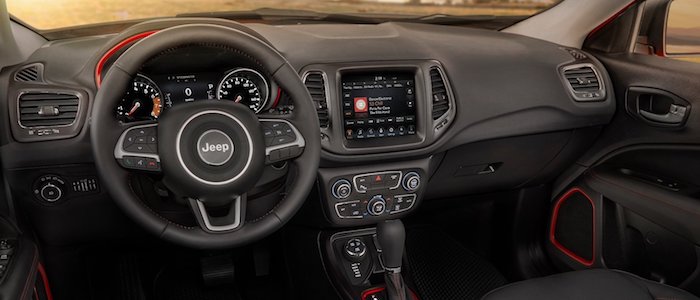Compare two cars
Compare any two cars and get our Virtual Adviser™ opinion
Dimensons & Outlines
Check vehicle history
Engine
Performance (manual gearbox)
Performance (automatic gearbox)
Expenses
Virtual Adviser's™ opinion
Two significantly similar cars, no doubt about that. Still, each one has something different to offer. Having both cars powered by petrol engines and utilizing the 5-door suv body style within the same 'SUV' segment, the only major difference here really is their wheel drive configuration (front for the Hyundai and 4 x 4 in the case of the Jeep). The first one has a Hyundai-engineered powertrain under the hood, a 4-cylinder, 16-valves 177hp unit, while the other one gets its power and torque from a 4-cylinder, 16-valves 170hp engine designed by FIAT.
SafetyA starting point here would be to take a look at the results from European New Car Assessment Programme (Euro NCAP) tests which were performed on both of the cars, with the same number of safety stars gained in the process. That aside, let's consider some other aspects which affect safety. Both vehicles belong to the suv segment, which is generally a very good thing safety-wise, still it doesn't help us solve our dilemma, does it? On the other hand, when it comes to weight, a factor that most people underestimate, the American car offers a marginal difference of 5% more metal.
ReliabilityReliability is not the best thing to consider on the make level, but it is worth mentioning that Hyundai as a brand displays somewhat better results, at least on all of the models level. These are the official statistics, while our visitors describe reliability of Hyundai with an average rating of 4.5, and models under the Jeep badge with 4.0 out of 5. Some independent research have also placed Tucson as average reliability-wise, and Compass is more or less at the same level.That apart, owners of different cars powered by the same engine as the Korean car rank it on average as 4.5, while the one under the competitor's bonnet gets 4.8 out of 5.
Performance & Fuel economyHyundai is a bit more agile, reaching 100km/h in 0.1 seconds less than its competitor. In addition to that it accelerates all the way to 205 kilometers per hour, 5km/h more than the other car. When it comes to fuel economy the winner has to be the American car, averaging around 6.9 liters of fuel per 100 kilometers (41 mpg), in combined cycle. We can't ignore that 10% difference compared to the Korean car.
Verdict
Hyundai appears just a bit more reliable, although the difference is truly marginal. The most important thing when deciding between any two vehicles should always be safety, both passive and active. In my opinion, everything taken into account, the American car offers slightly better overall protection and takes the lead. From there things take a different direction, with Hyundai being considerably quicker, thus putting more smile on driver's face. It does come at a cost though, and that's the fuel consumption... I believe that, when we take all into account, we have only one winner here - the Jeep. Nevertheless, let's not forget that people have different preferences and needs, so what really counts is your personal feel. I'm only here to help. I suggest you spend two more minutes in order to find out which car, based on your needs and budget, would be picked by the virtual adviser™, among thousands of similar, yet so different vehicles.

































